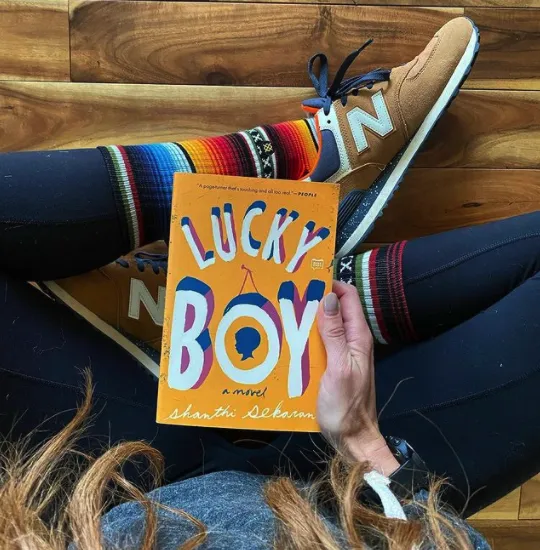Lucky Boy includes the sentence, “If this is a story, it’s one with no right ending.”
You know I love books that highlight the complexity of humanity. We all contain multitudes, and no story highlights this more unflinchingly than Lucky Boy. The infant of an undocumented immigrant placed into foster care, a detained mother determined to reconnect with her boy, a young Berkeley couple desperate for a child, and a runaway train of a story with an ending that only hinted as to its rightness.
What trumps a mother’s love? Only the welfare of her child. But who gets to say which is more powerful, and what is best for the child? I had feelings towards the childless couple—often not positive or flattering. I saw a right ending, though the book declares otherwise. We got the right ending, sort of. But nothing about it was right, and I want to shake someone for it.
(On another note, this story also triggered more of my own research into cultural appropriation versus appreciation in writing. Can or should an Indian-American author tell the story of a Mexican immigrant? How did she go about respectfully and accurately crafting the tale? Did she do it justice, according to those from that cultural group? I have gratitude for the prompt to continue my own learnings.)
You won’t always love it, but Lucky Boy will dig into your heart and have you contemplating the kinds of questions you’d probably rather not have to answer.
[Image: Me, cross-legged on the floor in a pair of Stance socks and New Balance sneakers. I like to dress like my book covers. I’m holding a paperback copy of Lucky Boy, by Shanthi Sekaran.]
Follow me on Instagram @melissau.


